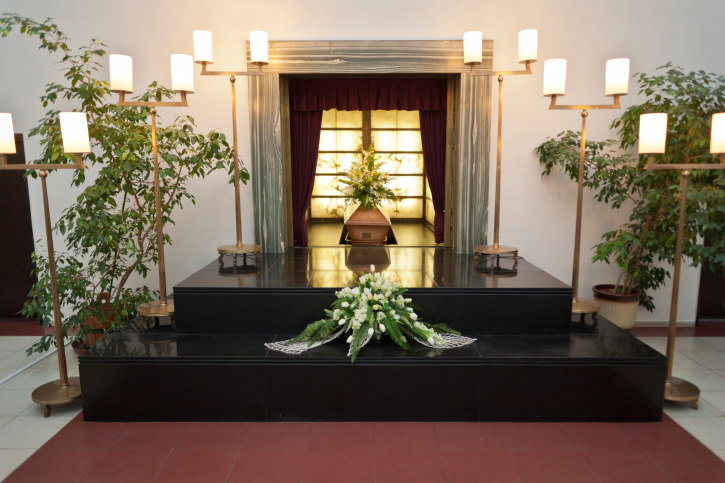 Once upon a time in America, every town had at least one family-owned funeral home. Generations of residents sought solace and shared grief in these homes, facilitated by directors who had succeeded a father or mother or uncle before them. In the fairly recent past, however, funeral homes have mirrored a nationwide cultural shift in which younger family members have moved far from their roots and away from legacy businesses. This American diaspora, combined with a volatile economy, has culled the number of privately owned funeral homes from the landscape. Those that remain depend upon a commitment to legacy and community.
Once upon a time in America, every town had at least one family-owned funeral home. Generations of residents sought solace and shared grief in these homes, facilitated by directors who had succeeded a father or mother or uncle before them. In the fairly recent past, however, funeral homes have mirrored a nationwide cultural shift in which younger family members have moved far from their roots and away from legacy businesses. This American diaspora, combined with a volatile economy, has culled the number of privately owned funeral homes from the landscape. Those that remain depend upon a commitment to legacy and community.
Taking One's Place
Some far-flung family members are returning home to take up the business. They might be convinced to come back by an older relative who is unable to continue the work. They could return when someone dies and there is no one to carry on operations. Family members who return are likely touched by the many benefits of serving a community for decades. A funeral home provides continuity within a community. There is something special about providing care and solace to people who are grieving, especially when one knows them as neighbors. A local funeral director who grew up in the vicinity forges a bond with families by helping them process death in its many forms, from the demise of the young to the passing of the old. A business establishes a clear identity and a close connection to generations of local residents, much like a religious organization.
Difficulties of a Family Operation
The decline in the number of privately owned funeral homes is due to more than one single circumstance. The failure or dissolution of many business came about from:
- A rise in corporate-owned operations
- Difficulty in securing financing
- Lack of interest in younger family members
Any given business may have suffered from one, two or all three of these developments. Corporations have the money and infrastructure to ensure a measure of success that private operations lack. The recent recession made bank financing almost impossible for most businesses, including those in the funeral industry. In fact, on some blocks in some cities, the funeral home is the only single-owner business left standing.
The aforementioned diaspora severely limited staffing and expansion. Douglas Raphael is 75 years old, and has worked at the Lawrence A. Jones Funeral Home in Kansas City, Mo., for 53 of those years. In regard to the young folk leaving the nest, Raphael says, "The first generation enjoys it and the third generation destroys it." Still, there are a few who take pride in keeping their family-owned business alive throughout periods of financial uncertainty and social upheaval.
Adapting to Change
Funeral services can be expensive. This fact poses yet another difficulty for privately owned funeral homes. Many people are opting out of $10,000 and $20,000 services in favor of other choices. Directors are coming up with new and creative ideas that trim costs and keep clients. One of these options is the availability of a rental casket. Families can honor their loved one and say goodbye with a service that employs a beautiful casket with a traditionally crafted look. Afterward, a liner casket is removed and the loved one is ready for a natural internment or cremation. The shell casket can be of service for years. While funeral homes have heavily relied on casket sales for a large portion of their revenue, this shift to accommodate a broader clientele indicates a willingness to meet the demands of change. In the years to come, the operations that survive could be the ones that are flexible enough to adapt to cultural shifts without losing their core connection to the community. Certainly, there will always be a demand for support in times of grief.
Add Your Comment